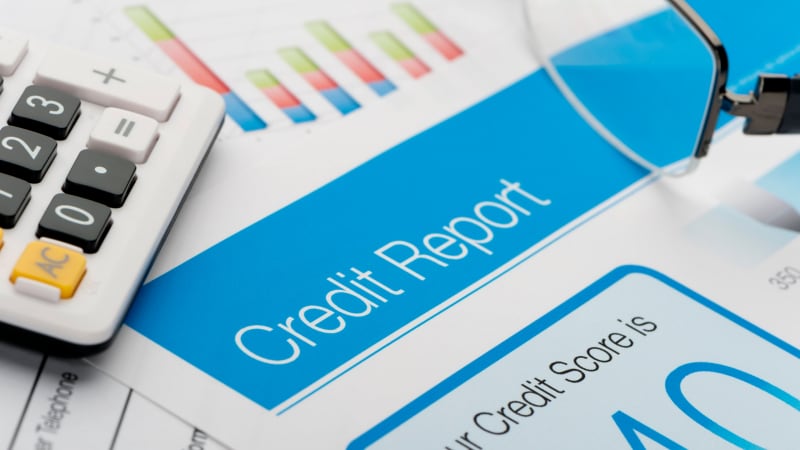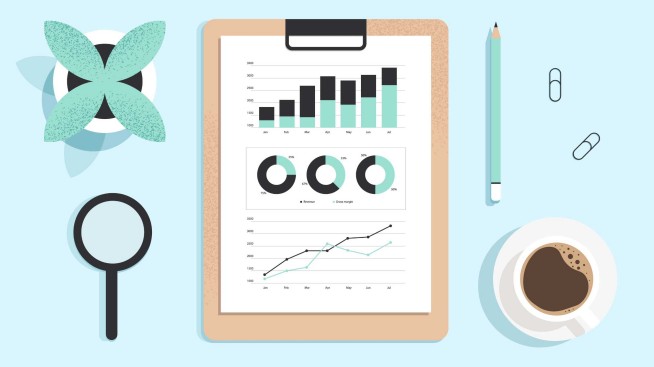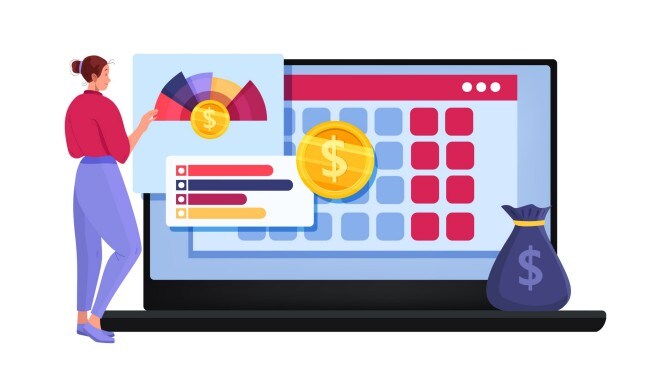When do late payments show up on your credit report?

When do late payments show up on your credit report?
The economics of life can sometimes be difficult to navigate—especially when there's inflation, high cost of living and unpredictable events that pose a challenge to budgeting. Your priorities may be to get food on the table, to take care of your health, look out for your loved ones and to be able to get your car fixed so you can go to work. Meeting basic needs can be expensive, and it can be easy to overlook how all these costs add up.
Sometimes this results in missing a credit card payment—whether it's due to a lack of funds or forgetfulness. We're all human, and a credit card payment due date can easily slip by when life is busy.
In this article, we'll discuss:
- What a late payment is
- How late payments affect your credit score
- What you can do if you miss a payment
- Preventing late payments with credit monitoring
What is a late payment?
Late payments are considered any amount of money that you owe to a financial institution, bank, lender or creditor that you have not paid by the due date. Late payments may be treated differently depending on what you're paying towards (for example, a loan or mortgage), but for the purposes of this article, we'll be discussing late payments specifically towards credit card bills. They are categorized by duration— 30 days, 60 days, 90 days and 120 days.
If you've forgotten about a payment, a late payment may appear on your credit report. According to the Consumer Financial Protection Bureau, a payment is considered late if it's been made after 5:00 p.m. on the day the payment is due in the time zone listed on the billing statement. If the due date falls on a Sunday or a bank holiday, then the payment date will be moved to the next business day.when-is-my-credit-card-payment-considered-to-be-late However, the timing of your late payment may determine whether or not it gets reported (more on this later).
If your credit card issuer sees that you've missed a payment, they could report it to one or all of the three main credit bureaus—Experian™, Equifax™ and TransUnion®. The late payment could end up on your credit report approximately 30 days after it’s missed when the bureaus update the information that's been reported by your issuer. Note, however, that your payment is still considered 30 days or more late if you still haven't made your payment at this time.
Late payments can affect your score and potentially affect your access to lower interest rates and the other advantages of good credit. That's why understanding what late payments are can help you make proactive choices regarding your financial health.
How late payments affect credit score
A major factor that goes into calculating your credit score is payment history. It makes up about 40% of your VantageScore3.0® and 35% of your FICO® score. Your payment history essentially captures your ability to pay the amount you owe on your bills on time and how frequently you make your payments without missing them.
A late payment demonstrates to current and potential lenders that you may not be fully reliable when it comes to paying your debts on time. Late payments can affect your payment history, which could negatively impact your credit score.
The degree of impact depends on how long it's been since you missed the due date—the later your payment, the worse it can affect your score. Let's go into a few different scenarios below.
Missing a payment by a few days
When you're under a lot of pressure from work or caught up with all kinds of responsibilities, it can be easy to miss a payment, even if you consider yourself responsible and you have a good credit score and solid credit history. If you miss a payment by a few days but make the payment in full immediately, it's possible that your issuer won't report this activity to the credit bureaus as a late payment. However, if you're only able to make a partial payment, then this will get reported and appear on your credit report as a late payment. The usual time period is 30 days for a credit report to reflect a late payment. This late payment could hurt your score and lead to higher annual percentage rates (APRs) as a consequence, depending on your card's terms and conditions.
Missing a payment by 30 days
If you haven't made your payment within 30 days of the due date, this is typically when issuers will report a late payment to the credit bureaus. Even if this is the first and only time your payment is late by 30 days, it can still impact your score—by about 100 points or more, depending on the scoring model and your current credit score.
Missing a payment by 60 days
Your credit score could be impacted more at the 60-day mark than if you were to make your payment after 30 days. You could also face higher APRs that lead to you owing more money due to accrued interest as well as potential late fees.
Missing a payment by 90 days or more
At this point, your credit score could be hurt significantly. If you wait to pay off your late payment even longer—by about 120 days total—your creditor could write this debt off as a loss (otherwise known as a chargeoff). Even if you pay off the late payment eventually, derogatory marks like this stay on your report for up to 7 years. It almost goes without saying that you do not want to wait this long to make a late payment.
What to do if you miss a payment
When you realize you've missed a payment, it can be stressful, but there is a road to recovery. If you recently missed a credit card payment and you're worried about the consequences, take a deep breath—your credit is not forever damaged and you have a number of options available to help you improve your score.
Remember, some issuers may not report the missing payment to bureaus if you're just slightly late—but be sure to check with the terms and conditions of your credit card account. You may even want to call the issuer to confirm.
Let's go through the process of recovering from a missed payment.
Pay your minimum payment
One immediate step you can take is to try to pay your minimum payment. This is the amount that you owe towards your credit card at the end of each billing cycle—if your payments are late, there could be additional fees to pay towards this amount, such as interest and late fees. Typically, though, it is a fixed, smaller amount reflecting just a portion of your entire monthly billing statement. Paying this can help you avoid late fees and further consequences like higher APRs down the line. However, if possible, pay your entire bill. If you're struggling to cover the bill in full, consider trimming your budget of any unnecessary expenditures (for example, a subscription you rarely use).
Contact your issuer
We all make mistakes—if you accidentally forgot to pay your bill, you might get a late fee and added interest. However, if it's late by just a few days, try to pay off the balance or minimum payment right away and then contact your credit card issuer, typically a bank or other financial institution, to see if they'll waive your late fee. If you're normally a responsible and loyal customer, it's possible they'll let this one slide. You may also want to check with your terms and conditions to see if your credit card has a grace period.
Set up automatic payments
Even if you aren't able to pay off your debt right away, taking small steps towards paying it off can benefit you in the long run. It can help establish a reliable payment history, which can boost your credit score over time. Consider setting up automatic payments so that, no matter what, you'll have paid at least a portion of your balance, even if it's just your minimum payment.
It's essential that you have the funds to do so, however, because you could face overdraft fees if you try to make a payment with insufficient funds. Additionally, it may be more difficult to dispute an overpayment if the money is already out the door.
Stay proactive with credit monitoring
Now that you know how late payments can impact your score, you might be wondering how to prevent this from happening in the future. It takes diligence and vigilance to successfully make all your payments on time, every time. It's important to continually monitor your finances—even if only for a few minutes each week through the convenience of a digital platform.
When you enroll in Chase Credit Journey®, you can get your free credit score and credit report provided by Experian™. When you check your score regularly, your score will be refreshed every 7 days, or monthly if you only check it once in a while.
Credit Journey also offers you free credit monitoring. You'll receive alerts when there are changes to your credit card account. Monitoring your credit is a simple but effective way of keeping track of your personal finances. You can keep your eye out for any changes, such as late payments, and make proactive choices to help protect your credit score.
Enroll today to get access to free resources and insights.



